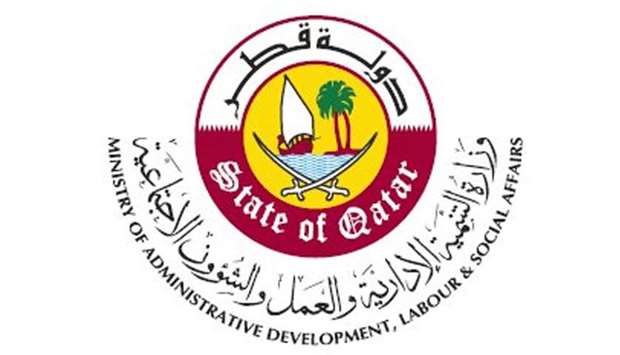* MADLSA will be working with employers to update all employment contracts where workers earn less than the amount established by the new Law, which will come into force after 6 months of its publication in the official gazette
*Minimum wage for workers set
*NOC for job change abolished
*Stricter penalties for employers who fail to pay their workers
*Number of labour dispute resolution committees increased
*Law is first of its kind in the Middle East
*Wage Protection System being upgraded
Qatar on Sunday introduced a minimum wage package for all private sector workers, including domestic workers, and abolished the No-Objection Certificate (NOC) requirement to change jobs as part of its labour reform programme.
In furtherance of Qatar’s efforts to protect the interests of employers and employees alike, the Ministry of Administrative Development, Labour and Social Affairs (MADLSA) has taken a major step forward in its labour reform programme, introducing a non-discriminatory minimum wage and removing the No-Objection Certificate (NOC) requirement to change jobs for employees, a ministry statement said.
According to Law No. 17 of 2020 on Setting the Minimum Wage for Workers and Domestic Workers sets the minimum wage for all private sector workers, including domestic workers, at QR 1,000 per month as a basic wage, as well as QR 500 per month allocated by the employer for accommodation expenses and QR 300 per month for food, unless the employer already provides adequate food or accommodation for the employee or domestic worker.
MADLSA will be working with employers to update all employment contracts where workers earn less than the amount established by the new Law, which will come into force after six months of its publication in the official gazette.
The minimum wage was decided following extensive consultations with a specialised national committee composed of relevant authorities in Qatar to consider the matter. The law is the first of its kind in the Middle East and will provide additional stability to Qatar’s labour market.
In light of the above, a Minimum Wage Committee will be formed and tasked with frequently studying and reviewing the minimum wage of workers and domestic workers.
The government also introduced Decree Law No. 18 of 2020 amending some provisions of Labour Law No. 14 of 2004 and Decree Law No. 19 of 2020 amending some provisions of 2004 Law No. 21 of 2015 regulating the entry and exit of expatriates and their residence, which protects the rights of both employers and employees and facilitates the employer change process.
This will drive greater competition in Qatar’s labour market by allowing employees to change employers and allowing employers to attract the best talent in the local market.
"As part of our efforts to boost the effectiveness of the Wage Protection System, the new amendments to the Labour Law prescribe stricter penalties for employers who fail to pay their workers’ wages and introduce penalties for employers who fail to provide adequate accommodation for their workers, in line with the standards established by the Ministry.
The new amendments also include increasing the number of labour dispute resolution committees in an effort to tackle the number of labour disputes, facilitate workers’ access to the rights, and expedite legal proceedings," the statement said.
HE the Minister of Administrative Development, Labour and Social Affairs Yousuf Mohamed al-Othman Fakhro said, “The State of Qatar is committed to creating a modern and dynamic labour market. In line with Qatar Vision 2030, these new laws mark a major milestone in this journey and will benefit workers, employers, and the nation alike.”
Attracting the desired combination of migrant workers, protecting their rights, and ensuring their safety is part of the human development goals of Qatar’s 2030 National Vision. With today’s announcement, Qatar delivers on its promise to expand the labour market in a manner that drives competition, boosts investment in the local economy, and drives economic growth in Qatar. To ensure compliance with the changes, MADLSA is working with competent authorities to upgrade the Wage Protection System, strengthen the capacity of inspectors, and apply stricter penalties to companies that violate the law.

